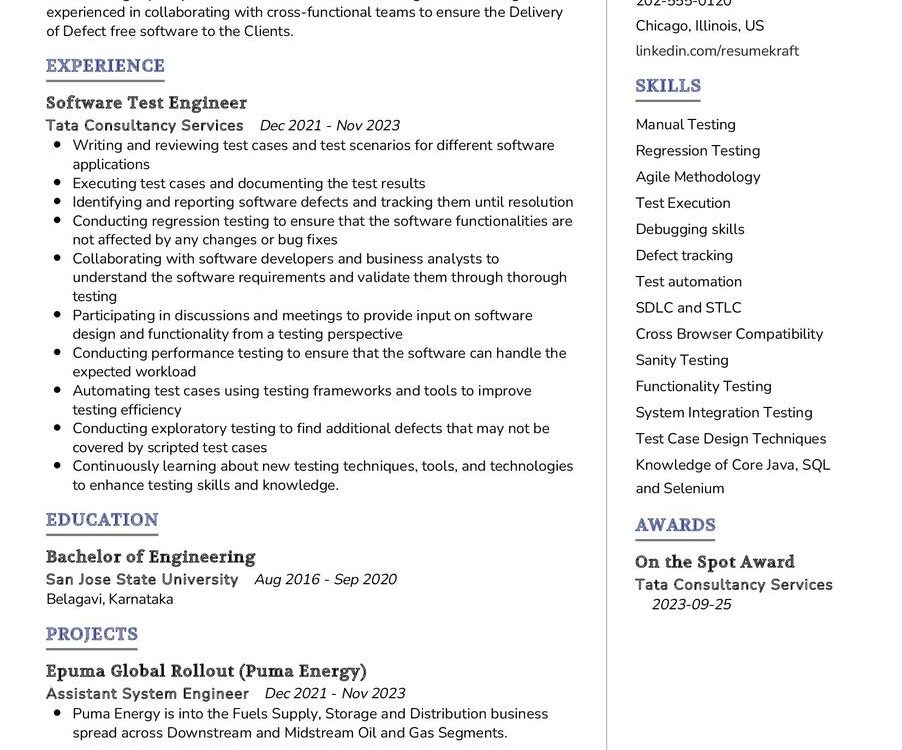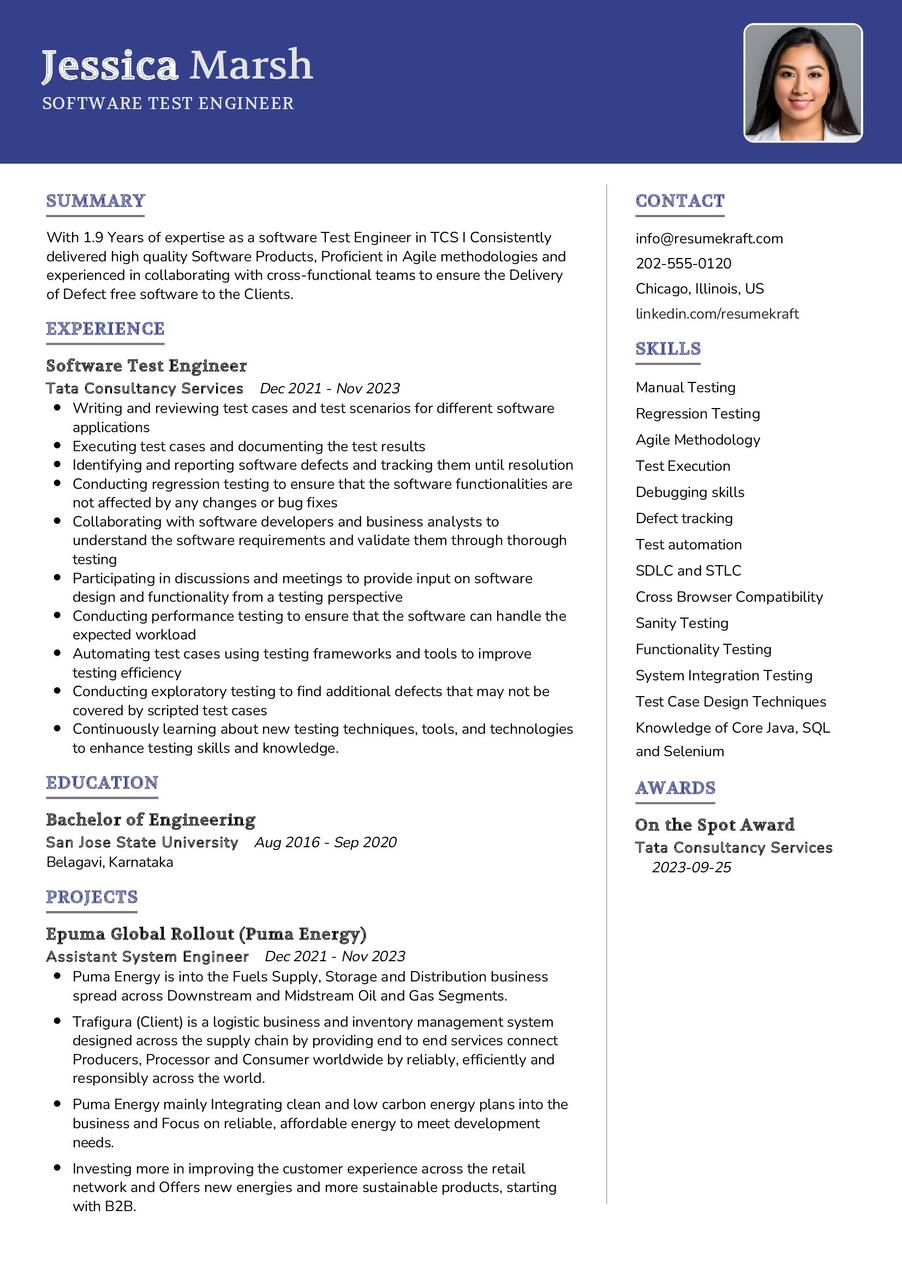Exploring the Role of a Software Test Engineer
In the ever-evolving realm of software development, the position of a Software Test Engineer has emerged as a critical player in ensuring the quality and functionality of software applications. This role requires a unique combination of technical proficiency and analytical skills to identify and address potential issues before a product reaches end-users. Let’s delve into the multifaceted responsibilities and requirements that define the role of a Software Test Engineer.
Software Test Engineer Job Requirements
To embark on a career as a Software Test Engineer, one must meet specific criteria and acquire a diverse skill set. Here are the key prerequisites for stepping into this dynamic role:
- A Bachelor’s or Master’s degree in Computer Science, Software Engineering, or a related field, showcasing a strong foundation in the technical domain.
- Proficient understanding of software testing methodologies, including manual and automated testing approaches.
- Experience in creating detailed, comprehensive, and well-structured test plans and test cases.
- Familiarity with programming languages, such as Java, Python, or C++, to facilitate automated testing processes.
- Strong analytical and problem-solving skills, essential for identifying and resolving software defects.
- Effective communication skills to collaborate with development teams and convey testing results clearly.
Continuous learning and staying updated on the latest trends in software testing are vital for excelling in this dynamic field.
Responsibilities of a Software Test Engineer
The role of a Software Test Engineer is diverse, involving various responsibilities aimed at ensuring the quality and reliability of software products. Let’s explore the core duties that define this role:
- Developing and executing test plans to ensure the functionality, usability, and performance of software applications.
- Creating and maintaining automated test scripts to streamline the testing process and improve efficiency.
- Collaborating with cross-functional teams to understand project requirements and provide valuable input during the development phase.
- Identifying, documenting, and tracking software defects, working closely with developers to facilitate timely resolutions.
- Performing regression testing to ensure that new developments do not negatively impact existing functionalities.
- Participating in the continuous improvement of testing processes and methodologies within the organization.
- Conducting thorough post-release/post-implementation testing to guarantee software stability.
Each responsibility is a crucial piece of the puzzle, contributing to the overall quality assurance process in software development.
Software Test Engineer Resume Writing Tips
Crafting a compelling resume is essential for standing out in the competitive field of software testing. Here are some tips to effectively communicate your skills and experience as a Software Test Engineer:
- Highlight your experience with different testing methodologies, showcasing adaptability and versatility.
- Showcase instances where your testing efforts contributed to the successful delivery of high-quality software products.
- Quantify your achievements, using metrics to demonstrate the impact of your testing efforts on project outcomes.
- List relevant certifications in software testing, such as ISTQB certification, to underscore your commitment to professional development.
- Customize your resume for each application, aligning your skills and experiences with the specific requirements of the job.
Remember, your resume is your professional narrative, and it should effectively communicate your expertise and achievements as a Software Test Engineer.
Software Test Engineer Resume Summary Examples
Your resume summary serves as the gateway to your professional story. Craft a powerful summary that encapsulates your experience and value proposition as a Software Test Engineer:
- “Results-driven Software Test Engineer with over 5 years of experience, adept at designing and executing comprehensive test plans, ensuring the delivery of high-quality software products.”
- “Detail-oriented Software Test Engineer with expertise in automated testing, contributing to a 15% increase in testing efficiency and a reduction in software defects.”
- “Experienced Software Test Engineer specializing in performance testing, with a proven track record of optimizing software applications for enhanced user experience.”
Your resume summary should provide a snapshot of your skills, experience, and the value you bring to a potential employer.
Building a Robust Experience Section for Your Software Test Engineer Resume
Your experience section is the heart of your resume, illustrating your journey as a Software Test Engineer. Here are examples to guide you in creating a strong experience section:
- “Led the testing efforts for a complex e-commerce platform, ensuring seamless integration with third-party payment gateways and reducing post-release defects by 20%.”
- “Implemented an automated testing framework, resulting in a 30% reduction in testing time and significantly improving the accuracy of test results.”
- “Collaborated with the development team to establish a continuous integration testing pipeline, enhancing the overall efficiency of the software development life cycle.”
Your experience section should tell a compelling story of your contributions and achievements in the field of software testing.
Education Section for Your Software Test Engineer Resume
Your educational background provides the foundation for your career as a Software Test Engineer. Here’s how you can present your academic achievements:
- Master of Science in Software Engineering, XYZ University, a comprehensive program emphasizing advanced testing methodologies, 2017.
- Bachelor of Computer Science, ABC University, equipped with a solid understanding of software development principles, 2015.
- ISTQB Certified Tester – Foundation Level, showcasing a commitment to professional development in software testing, 2018.
Each educational milestone is a testament to your dedication to honing your skills in the field of software testing.
Software Test Engineer Skills for Your Resume
Your skill set is a toolkit that showcases your capabilities as a Software Test Engineer. Here are essential skills for success in this role:
Soft Skills:
- Attention to detail, ensuring thorough testing of software functionalities.
- Communication and collaboration, facilitating effective interaction with cross-functional teams.
- Analytical thinking, essential for identifying and solving complex software defects.
- Time management, optimizing testing processes within project timelines.
- Adaptability, adjusting testing strategies based on evolving project requirements.
Hard Skills:
- Proficiency in automated testing tools, such as Selenium or JUnit.
- Knowledge of programming languages, including Java or Python, for creating automated test scripts.
- Experience with testing frameworks, like Jira or TestRail, for efficient test management.
- Understanding of different testing methodologies, such as black-box and white-box testing.
- Database knowledge, for testing data integrity and interactions within software applications.
Each skill is a valuable asset in your toolkit, contributing to your effectiveness as a Software Test Engineer.
Common Mistakes to Avoid When Writing a Software Test Engineer Resume
Steer clear of common resume pitfalls to ensure your application stands out. Here are mistakes to avoid when crafting your Software Test Engineer resume:
- Avoid using generic terms; instead, tailor your resume to highlight your unique contributions and skills as a Software Test Engineer.
- Focus on achievements rather than just listing job duties, providing a deeper insight into your impact on software testing projects.
- Don’t overlook the importance of a cover letter, utilizing it as an opportunity to convey your passion for software testing and your specific fit for the role.
- Balance technical details; avoid overwhelming the reader with excessive jargon, ensuring your resume is accessible to a broader audience.
- Always proofread your resume to maintain a professional image, avoiding typos or grammatical errors that can detract from your qualifications.
Avoiding these common mistakes will enhance the effectiveness of your Software Test Engineer resume.
Key Takeaways for Your Software Test Engineer Resume
As you craft your Software Test Engineer resume, keep these key takeaways in mind:
- Emphasize your adaptability and versatility in employing various testing methodologies.
- Highlight the quantifiable impact of your testing efforts on project outcomes, using metrics to showcase your achievements.
- Showcase your commitment to continuous learning, including relevant certifications and ongoing professional development.
- Customize your resume for each application, aligning your skills and experiences with the specific requirements of the job.
Your resume is your professional story, and by following these takeaways, you can create a compelling narrative that resonates with potential employers.
Finally, feel free to utilize resources like AI Resume Builder, Resume Design, Resume Samples, Resume Examples, Resume Skills, Resume Help, Resume Synonyms, and Job Responsibilities to create a standout application and prepare for the Software Test Engineer job interview.


